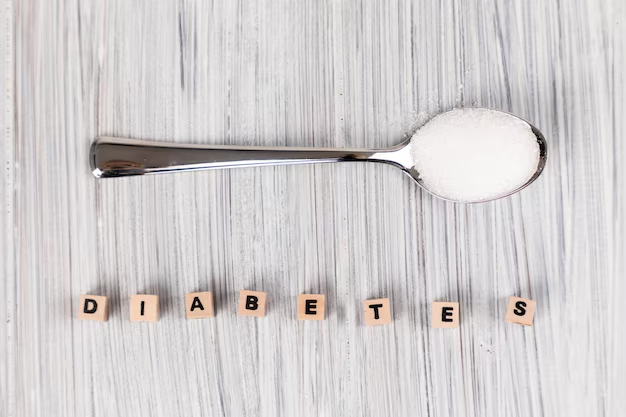Your Guide to How Many Carbohydrates Can a Diabetic Have In a Day
What You Get:
Free Guide
Free, helpful information about Diabetes FAQ and related How Many Carbohydrates Can a Diabetic Have In a Day topics.
Helpful Information
Get clear and easy-to-understand details about How Many Carbohydrates Can a Diabetic Have In a Day topics and resources.
Personalized Offers
Answer a few optional questions to receive offers or information related to Diabetes FAQ. The survey is optional and not required to access your free guide.
Understanding Carbohydrate Limits for Diabetics: What You Need to Know
Managing diabetes effectively requires a significant understanding of how carbohydrates impact blood sugar levels. Carbohydrate management is key because these nutrients are quickly converted into sugar in the bloodstream, which in turn affects insulin sensitivity and overall metabolic health. Finding the right balance can vary greatly due to individual needs, lifestyle, and health goals.
How Many Carbs Are Recommended for Diabetics?
There’s no one-size-fits-all answer when it comes to daily carbohydrate intake for diabetics. However, a common guideline suggests that carbohydrates should comprise about 45% to 60% of total daily calories. For someone consuming 1,800 calories per day, this translates to about 202 to 270 grams of carbohydrates. These numbers can vary significantly based on personal health, age, activity level, and how one’s body manages insulin.
Considerations for Individual Needs
Type of Diabetes:
- Type 1 Diabetes: Insulin therapy is a staple, so individual carb counting and insulin adjustments are crucial.
- Type 2 Diabetes: Focus might be on weight management and metabolic health, altering carb needs.
Physical Activity:
- Increased activity can mean a higher carbohydrate allowance as muscles use glucose for energy.
Glycemic Index (GI):
- Prioritize low-GI foods to reduce spikes in blood sugar. Whole grains, legumes, and non-starchy vegetables are excellent choices.
Balancing Carbohydrates with Other Nutrients
It’s essential to balance carb intake with proteins and healthy fats. Incorporating nutrients from different food groups not only helps maintain energy levels throughout the day but also aids in overall health. This balance can be a helpful part of weight management strategies, which are crucial for diabetes management.
Creating a Personalized Carb Budget
Working with healthcare professionals, such as a registered dietitian, can help create a customized dietary plan. Monitoring blood glucose regularly and adjusting nutrient intake is key in finding what works best at an individual level.
Accessing Supportive Resources
Understanding carbohydrate management is just a piece of the puzzle. Navigating the financial aspects of diabetes care, such as medication costs, can also be daunting. Here's where government aid and other resources can make a significant difference.
Financial Resources for Diabetes Management
- Medicare and Medicaid: Provide coverage for diabetes supplies and self-management education.
- Diabetes Assistance Organizations: Many offer financial aid for medications, supplies, and healthcare.
- Community Health Clinics: Provide subsidized care for those who qualify.
Educational Opportunities
- Free Workshops: Offered by local health departments or diabetes support groups.
- Online Courses: Platforms offering information on managing diabetes and healthy lifestyle choices.
Feeling empowered and informed is vital for diabetes management. Leveraging resources not only aids in handling healthcare costs but also improves overall living quality. By taking steps today, you can create a renewed approach towards managing diabetes more effectively.
Financial and Educational Resources for Diabetics
- 💸 Government Programs: Medicaid and Medicare for qualifying individuals.
- 🏥 Community Clinics: Affordable health services and nutritional counseling.
- 📚 Online Courses: Free online resources for diabetes education.
- 💡 Local Workshops: Community support groups offering free sessions on diet management.
What You Get:
Free Diabetes FAQ Guide
Free, helpful information about How Many Carbohydrates Can a Diabetic Have In a Day and related resources.

Helpful Information
Get clear, easy-to-understand details about How Many Carbohydrates Can a Diabetic Have In a Day topics.

Optional Personalized Offers
Answer a few optional questions to see offers or information related to Diabetes FAQ. Participation is not required to get your free guide.


